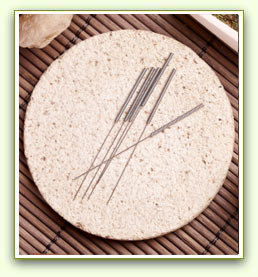


| |
| Home |
| Online Booking |
| Our Practitioners |
| Testimonials |
| About Acupuncture |
| FAQ |
| Services |
| Map & Directions |
| Articles |
| Contact |
| FREQUENTLY ASKED QUESTIONS |
|
This is the number one question for prospective patients. The simple answer is “no”. The needles are solid and thin, about the width of three human hairs. Hypodermic needles that you know from other medical settings are large gauge and have a hole that gouges the flesh and causes pain. Acupuncture needles are very fine and sharp and are quickly tapped through the skin with little or no sensation. It depends. Each company and plan has different coverage. But, because so few do cover acupuncture I do not accept insurance. Please call your insurance provider and ask them if they provide any coverage. If they do, I can provide you with a form that explains when you came and what you paid and you can submit it for reimbursement. I have been treating patients since 1997. I have used over 500,000 acupuncture needles (a conservative estimate) since then and the worst side-effect I have seen has been a bruise. Great!! Seriously, as a practitioner who treats people full-time, six days a week, I think it is an amazingly effective form of treatment. People often come to me as a last-ditch-effort and still often get positive results. I can tell you that research has determined that acupuncture causes an endorphin release, moderates inflammation, and reduces pain amongst other things. Future studies will invariably tell us more, but as long as the patient gets better, understanding how in western terms is only mental gymnastics. In Traditional Chinese Medicine terms acupuncture works because it helps to balance the yin and the yang, makes the chi (energy) flow properly and prompts the body back into a balanced state. If it did not work, it would not still be around and widely used and accepted after 3000 years. Yes, unless your doctor has advised otherwise. Acupuncture needles are so thin that if we hit a small capillary or get a drop or two of blood, the hole closes quickly behind the removal of the needle. As to other drugs, acupuncture is used by people of all ages and on a variety of medicines. It prompts the body towards balance, to get it to work more effectively. In some cases as people’s symptoms improve they are able to diminish or eliminate their need for medicines (under a doctor’s supervision). I have been treating people since 1997 when I began my student clinic internship in school. I have been licensed and practicing professionally since 1999. I trained at the New England School of Acupuncture (www.nesa.edu), the oldest acupuncture school on the country. I studied the dual track program of both Traditional Chinese Acupuncture and Chinese Herbal Medicine. Above and beyond my academic training I spent countless hours assisting and observing at the office of Ping Chan, an expert acupuncturist from Hong Kong who became my mentor. He taught me tuina (Chinese massage) and the application of internal and external herbs, especially for injury and pain conditions. I am a general practitioner and treat people of all ages and with a wide variety of conditions. But, I also have a specialty. From my internship with Ping Chan I developed an expertise in the treatment of injury. This is a special field in Chinese Medicine called Die Da (basically traumatology). In acupuncture schools this is rarely and minimally taught. This specialty includes tuina (massage), special acupuncture techniques and the use of herbs specific to injury and pain. After studying tuina (massage) with Ping Chan I also taught it at the acupuncture school for a few years. In addition, for a few summers I assisted Ping Chan in teaching a special continuing education seminar for other acupuncturists in the treatment of injury. There are no age limitations. I have treated people as young as 2 years old and as old as 93 years old. The only limitation would be that babies do not sit still for or take well to needling. The youngest patient I have seen for acupuncture has been 6 years old. I treat children younger than that with herbal medicine and tuina (massage). When I was in my early 20’s I was extremely active and injury-prone too. Each time I got injured I would go to the doctor and each time they would give me a pain-killer and a muscle relaxant. This only treated the symptoms and did little to help heal the injury. After multiple injuries with similar treatments I got frustrated. I was doing martial arts in Chinatown (Boston) and the next time I got injured I asked around for a better form of treatment. Someone recommended acupuncture and sent me to Ping Chan, an expert in the treatment of injury (who later became my mentor). I hated needles and was very hesitant, but I was desperate to get back to training. In a few treatments my injury had resolved and I was hooked. I began to observe and hang around Ping Chan’s office in Chinatown after work and on weekends and got more and more involved. When I finally decided to change my whole career path and become an acupuncturist, I found out that the oldest acupuncture school in the country was right outside of Boston in Watertown. The rest is history. |
RADIO INTERVIEW ON ACUPUNCTURE Don't see the player? You need to download Flash. 
Many Acupuncture Needles
Can Fit In the Shaft of A Hypodermic Needle
 |